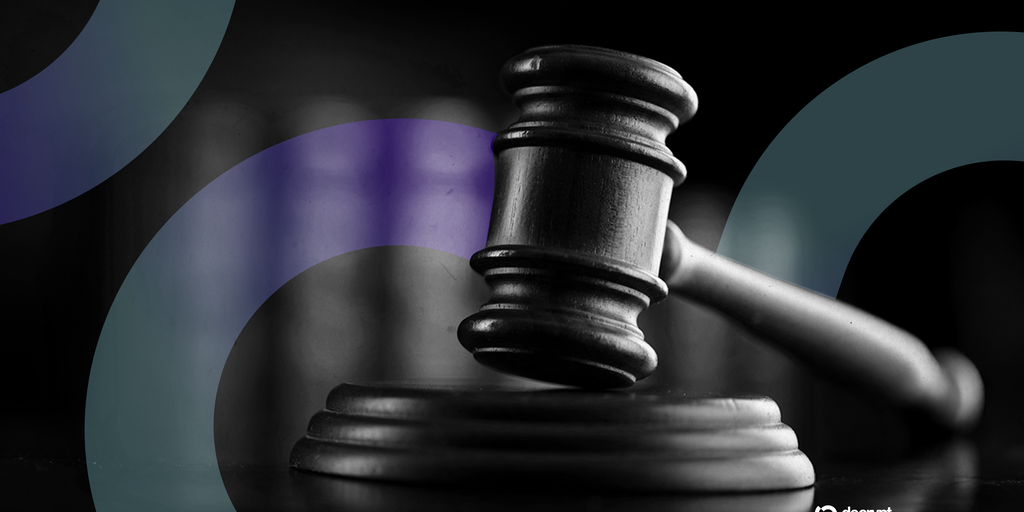Genesis Sues DCG, Seeks Recovery of Over $3.1B in Note and Asset Transfers
Genesis is suing DCG and CEO Barry Silbert to recover over $3.1 billion, alleging fraud, self-dealing, and improper asset transfers.
4 min read

Genesis Global has filed two new lawsuits against its parent company, Digital Currency Group, aiming to recover billions of dollars it alleges were improperly transferred as the lender’s financial condition deteriorated in 2022.
The new filings, publicly released Monday, allege DCG, CEO Barry Silbert, and affiliated executives orchestrated fraudulent transfers and misleading disclosures.
A Delaware Chancery Court complaint alleges that Genesis was "recklessly operated, exploited, and then bankrupted" by its parent company, following "a spectacular campaign of fraud and self-dealing."
Silbert allegedly "stepped in to conceal the crisis at Genesis from its lenders," while being "acutely aware" of risks embedded in Genesis' loan book, and its "vulnerability to Gemini and Bitvavo," the lawsuits allege.
Grayscale Investments allegedly benefited from the misconduct, though it is not named as a defendant.
Should the court rule in favor of Genesis, the case could serve as precedent that would "strengthen creditor rights, expand liability for parent companies in digital finance as it pertains to 'piercing the corporate veil,' and establish new standards for transparency and accountability in the crypto industry," Andrew Rossow, cyber and public affairs attorney and founder of Rossow Law, told Decrypt.
Genesis is seeking over $3.1 billion, including a $1.1 billion promissory note and more than $1.2 billion in disputed transfers, some of which were made in crypto now valued at over $2 billion.
"These baseless lawsuits recycle the same tired, two-year-old claims in an opportunistic attempt by sophisticated investors to extract additional value from DCG," a company spokesperson told Decrypt. "We worked in good faith with a wide range of stakeholders to try to achieve a comprehensive resolution of the DCG-related aspects of the Genesis bankruptcy. We will vigorously defend ourselves against these spurious claims.”
Promises and losses
Central to the Delaware filing is DCG's issuance of a 10-year, $1.1 billion promissory note in 2022, meant to cover Genesis's losses from Three Arrows Capital's default.
The note had a 1% interest rate and allegedly failed to provide real liquidity.
The lawsuits are backed by the Genesis Litigation Oversight Committee (LOC), appointed by the bankruptcy court to represent creditors' interests.
The committee claims the defendants spread misleading information and false financial reports to prevent a bank run and profit from the failing lender before its collapse.
The first signs of a bank run "appeared on May 7, 2022," the Delaware complaint reads.
"Within three days, LUNA's price per coin dropped from $80 to almost zero," with the tokens involved (TerraUSD and LUNA) becoming "essentially worthless" and erasing $45 billion in value at the time.
Transfers and recovery
Genesis filed a separate federal bankruptcy complaint in New York, detailing over $1.2 billion in allegedly preferential transfers to DCG and insiders before its Chapter 11 filing in January 2023.
Those transfers included $448 million to DCG, $136 million to DCG International, and $101 million to HQ Enhanced Yield Fund, among others.
Genesis also claims that $34 million in tax payments to DCG were fraudulent and is seeking in-kind recovery of over 19,000 BTC, 69,000 ETH, and 17 million tokens across other digital assets.
By May 2024, Genesis had reached a proposed $2 billion settlement with DCG, though litigation remains ongoing.
In January 2025, DCG and former Genesis CEO Michael Moro agreed to pay $38 million to settle SEC charges that they misled investors about Genesis's exposure to the collapse of Three Arrows Capital.
Neither DCG nor its executives admitted or denied the SEC’s allegations as part of the settlement.
"It's almost comically tragic: billions of dollars swirling between so-called 'industry leaders' who are supposed to set the standard, yet we're still debating the basics of fiscal responsibility and fiduciary duty," Rossow said.
Edited by Sebastian Sinclair
Editor's note: This story was updated to add comments from DCG's spokesperson.
Get crypto news straight to your inbox--
sign up for the Decrypt Daily below. (It’s free).
Recommended News
Decrypt-a-cookie
This website or its third-party tools use cookies. Cookie policy By clicking the accept button, you agree to the use of cookies.
